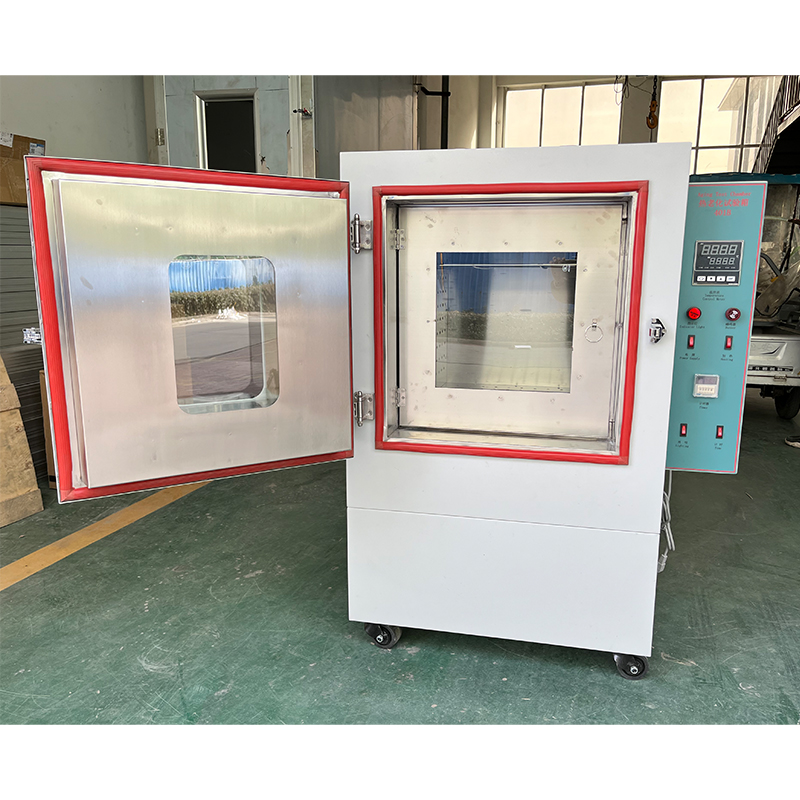tensile tester astm d412 manufacturer
Understanding the ASTM D412 Tensile Tester A Guide for Manufacturers
The ASTM D412 test is a standardized method widely used to determine the tensile properties of elastomeric materials. This testing protocol is crucial in various industries including rubber, plastics, and textiles, where understanding material performance under tensile stress is essential. In this article, we will explore the significance of ASTM D412, the attributes that manufacturers should consider when selecting a tensile tester, and how adherence to this standard can enhance product quality.
Importance of ASTM D412 Testing
ASTM D412 is fundamental in assessing the elastic properties of rubber and other elastomeric materials. By evaluating the tensile strength, elongation at break, and other mechanical properties, manufacturers can ensure that their materials meet industry specifications and performance requirements. Testing data derived from ASTM D412 can influence material selection, product formulation, and quality control measures.
The relevance of this test is evident in industries where material performance can have significant implications, such as automotive, aerospace, and biomedical fields. For instance, in the automotive industry, components like tires, gaskets, and seals must possess superior tensile strength to ensure durability and reliability. Hence, the ability to conduct ASTM D412 testing in-house not only speeds up the development process but also enhances the quality assurance protocol.
Key Features of ASTM D412 Tensile Testers
When manufacturers consider investing in a tensile tester for ASTM D412, several key features should be evaluated to ensure compliance and accuracy
1. Precision and Calibration The ability to obtain accurate measurements is paramount. Look for testers that allow for precise calibration to comply with ASTM standards. Regular calibration is essential to maintain the accuracy over time.
2. Load Capacity Different materials will have varying tensile strengths. A tensile tester must have the capacity to handle a wide range of loads to accommodate materials from soft elastomers to harder composites.
tensile tester astm d412 manufacturer

3. User-Friendly Interface An intuitive interface can improve efficiency in testing processes. Look for systems that offer straightforward navigation, and allow easy setup, monitoring, and data interpretation.
4. Data Management Modern tensile testers are equipped with software for data analysis, enabling manufacturers to store and analyze test results efficiently. A good data management system should provide statistical analysis and reporting capabilities that can assist in decision-making.
5. Durability and Low Maintenance Given the demanding nature of material testing, investing in a durable machine can prove cost-effective in the long run. Choose a manufacturer that offers robust equipment designed for longevity with minimal maintenance requirements.
Choosing the Right Manufacturer
Selecting a reputable manufacturer for ASTM D412 tensile testers is crucial. A good manufacturer should have a solid track record, provide comprehensive customer support, and offer training for operators. Look for testimonials and case studies that showcase their solutions in action within similar industries.
Additionally, ensure the manufacturer adheres not only to ASTM standards but also to ISO certifications that reflect their commitment to quality and consistency. This will provide confidence in the machines’ capabilities to deliver reliable and repeatable results.
Conclusion
Investing in an ASTM D412 tensile tester is a strategic decision for manufacturers producing elastomeric materials. By understanding the importance of this testing standard and the key features of tensile testers, companies can make informed choices that not only enhance product integrity but also boost their reputation in the marketplace. Ultimately, testing under the ASTM D412 standard ensures that products not only comply with regulatory requirements but also meet customer expectations for performance and reliability.
-
Why the Conductor Resistance Constant Temperature Measurement Machine Redefines Precision
NewsJun.20,2025
-
Reliable Testing Starts Here: Why the High Insulation Resistance Measuring Instrument Is a Must-Have
NewsJun.20,2025
-
Flexible Cable Flexing Test Equipment: The Precision Standard for Cable Durability and Performance Testing
NewsJun.20,2025
-
Digital Measurement Projector: Precision Visualization for Modern Manufacturing
NewsJun.20,2025
-
Computer Control Electronic Tensile Tester: Precision and Power for the Modern Metal Industry
NewsJun.20,2025
-
Cable Spark Tester: Your Ultimate Insulation Assurance for Wire and Cable Testing
NewsJun.20,2025
 Copyright © 2025 Hebei Fangyuan Instrument & Equipment Co.,Ltd. All Rights Reserved. Sitemap | Privacy Policy
Copyright © 2025 Hebei Fangyuan Instrument & Equipment Co.,Ltd. All Rights Reserved. Sitemap | Privacy Policy
